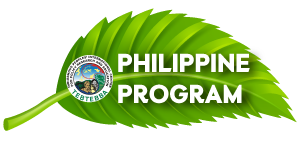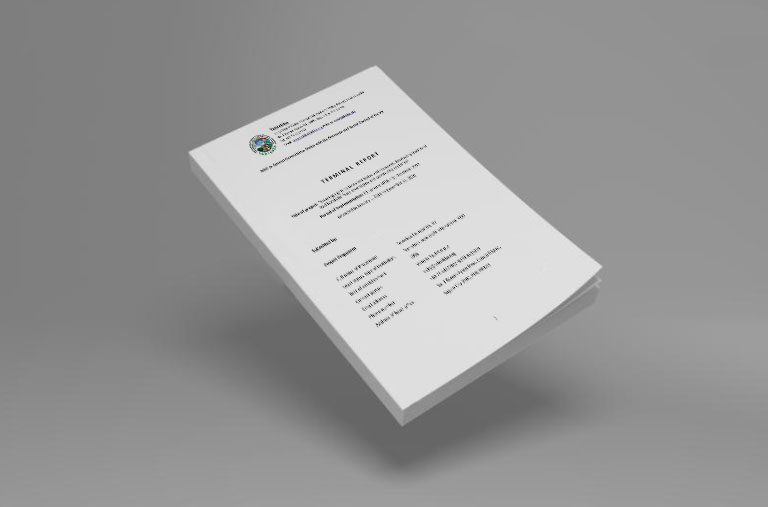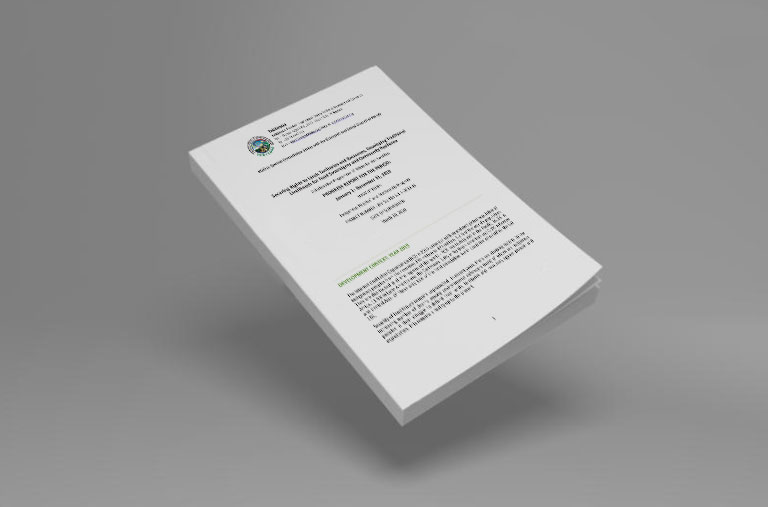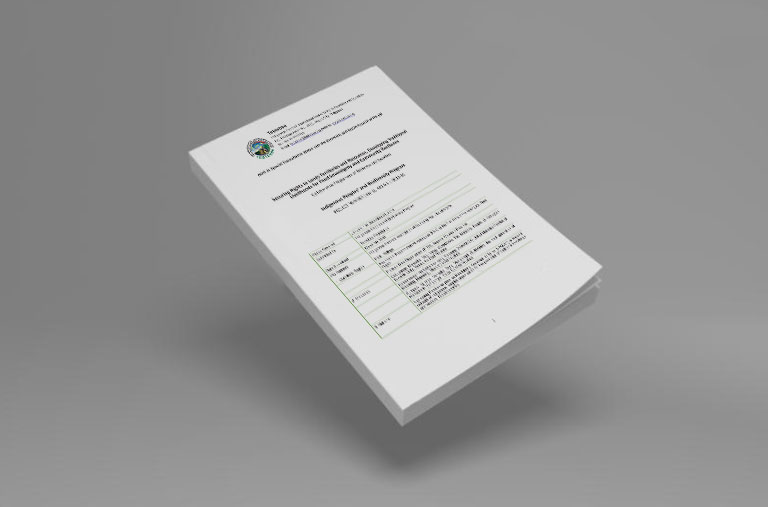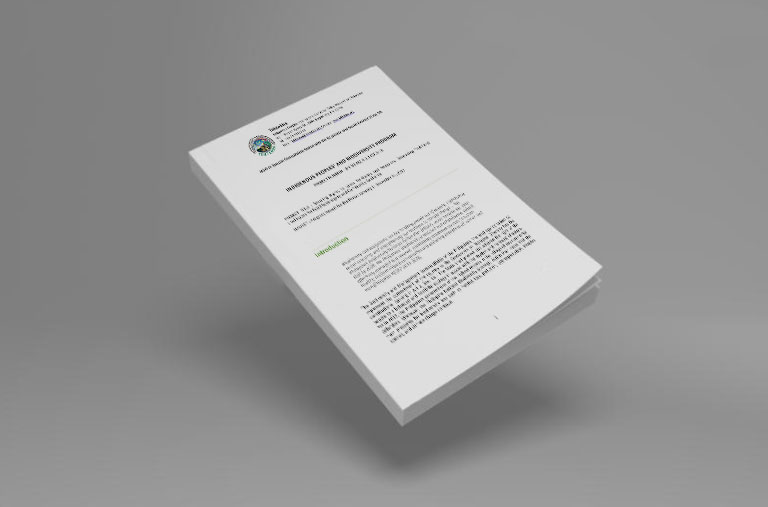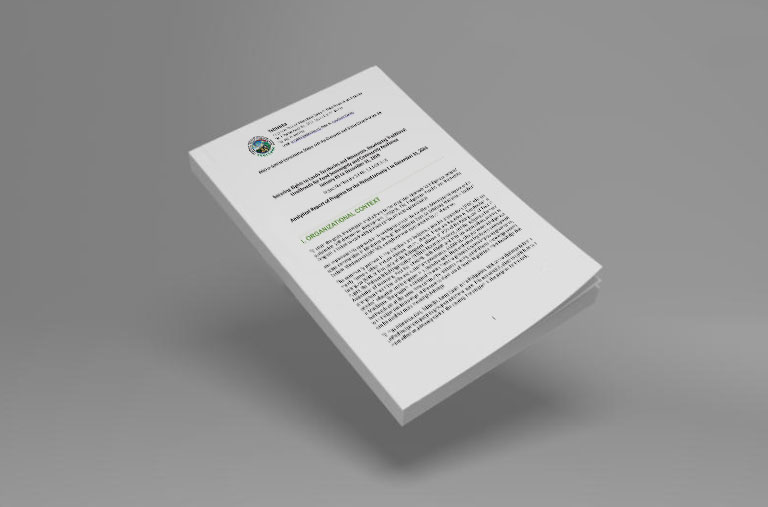Narrative Reports
Year 2020: Terminal Report
The report in 2020 serves as the terminal report for the years 2016 to 2020. This report contains 3 sections. First, is an assessment on the achievement and shortcomings of the expected outputs and outcomes; second presents the lessons learned and third are the recommendation for the ways forward. Moreover, it expounded more on the work related to providing assistance to communities to cope with the COVID 19 pandemic as a way also to introduce the new partners in community work and highlighted the result of the External Program Evaluation since its creation as the Convention on Biological Diversity Desk to becoming a full Indigenous Peoples’ and Biodiversity Program.
Narrative report January 1 to December 31, 2019
The Global Assessment of Biodiversity and Ecosystems Services by Inter-governmental Platform on Biodiversity and Ecosystems Services (IPBES) revealed that “the global environment upon which humanity as a whole depends, are being altered to an unparalleled degree”. “Compared to the accelerated downward trend in the world, ecosystems managed by indigenous peoples and local communities are generally declining less rapidly. Such finding should push government to heed the call “improve security of land tenure and support the strengthening of customary governance and indigenous systems for resilience and livelihoods which are critical to reduce the multidimensional aspects of poverty that they face while contributing to the Sustainable Development Goals (SDGs)”.
In the Philippines, indigenous territories remain a target for resource exploitation the state and private corporations through large-scale mining, energy projects, agribusiness plantations and infrastructures. Communities protesting against development aggression now face heightened vilification with the implementation of Executive Order No. 701, series of 2018, more popularly known as the “whole-of-nation” approach to end local communist armed conflict. It has a noble goal of attaining inclusive and sustainable peace through the “delivery of basic services and social development packages in conflict- affected areas and vulnerable communities, facilitate societal inclusivity, and ensure active participation of all sectors of society in the pursuit of the country’s peace agenda”. However, this “whole-of-nation” approach is being utilized to violate human rights and suppress dissent and activism. Amidst such challenges, Tebtebba and its partners generally achieved plans for the year.
Narrative report January 1 to December 31, 2018
This year 2018, the Philippines undertook three important actions in regards the implementation of the National Biological Diversity Action Plan. First is the formulation of Guideline on the Conduct of Assessment of Urban Biodiversity. Second, is the participation of the various indigenous peoples group in the crafting of indigenous conserved communities (ICCA) convened by the Philippine ICCA Project which aims to strengthen the conservation, protection, and management of biodiversity sites in the Philippines by institutionalizing ICCAs in addition to the national protected areas (PA) of the state. And third is the active drive for the clean-up of marine debris in some areas.
On the one hand, major challenges continue to be faced by indigenous peoples. These include threats on ancestral waters from resorts encroachment, sea grabbing, overfishing by commercial vessels, non-recognition of indigenous peoples marine resource management systems , the destruction of sacred sites among others . It is within these context that our c
community partners recognize the importance of strengthening customary governance.
Narrative report January 1 to December 31, 2017
In 2017, the Philippines garnered one of the highest records in the killings of environmental defenders. Moreover, the Philippine National Biodiversity Strategic Action Plan notes that the main pressures for biodiversity loss such as habitat loss, pollution, overexploitation, invasive species, and climate change continue.
Such context strengthened Tebtebba and its partners to search for more effective ways on how to carry on the work for the protection, promotion and enhancement of biological diversity and ecosystems services through strengthened customary governance, livelihoods development and knowledge production sharing.
Narrative report January 1 to December 31, 2016
This year started the new program phase that operationalizes the integrated holistic approach for indigenous peoples’ sustainable, self-determined development (IPSSDD) in Philippine pilot sites. This framework puts indigenous peoples’ rights in the center of development, while ensuring the protection and sustainable use and management of the environment and the development of sustainable traditional low-carbon livelihoods .
Popularizing the IPSSDD orientation resulted in increased understanding of the present development paradigm that continues to create imbalance , worsen poverty and inequality, thus the need for communities to define their own alternative development strategies from their own world views.
